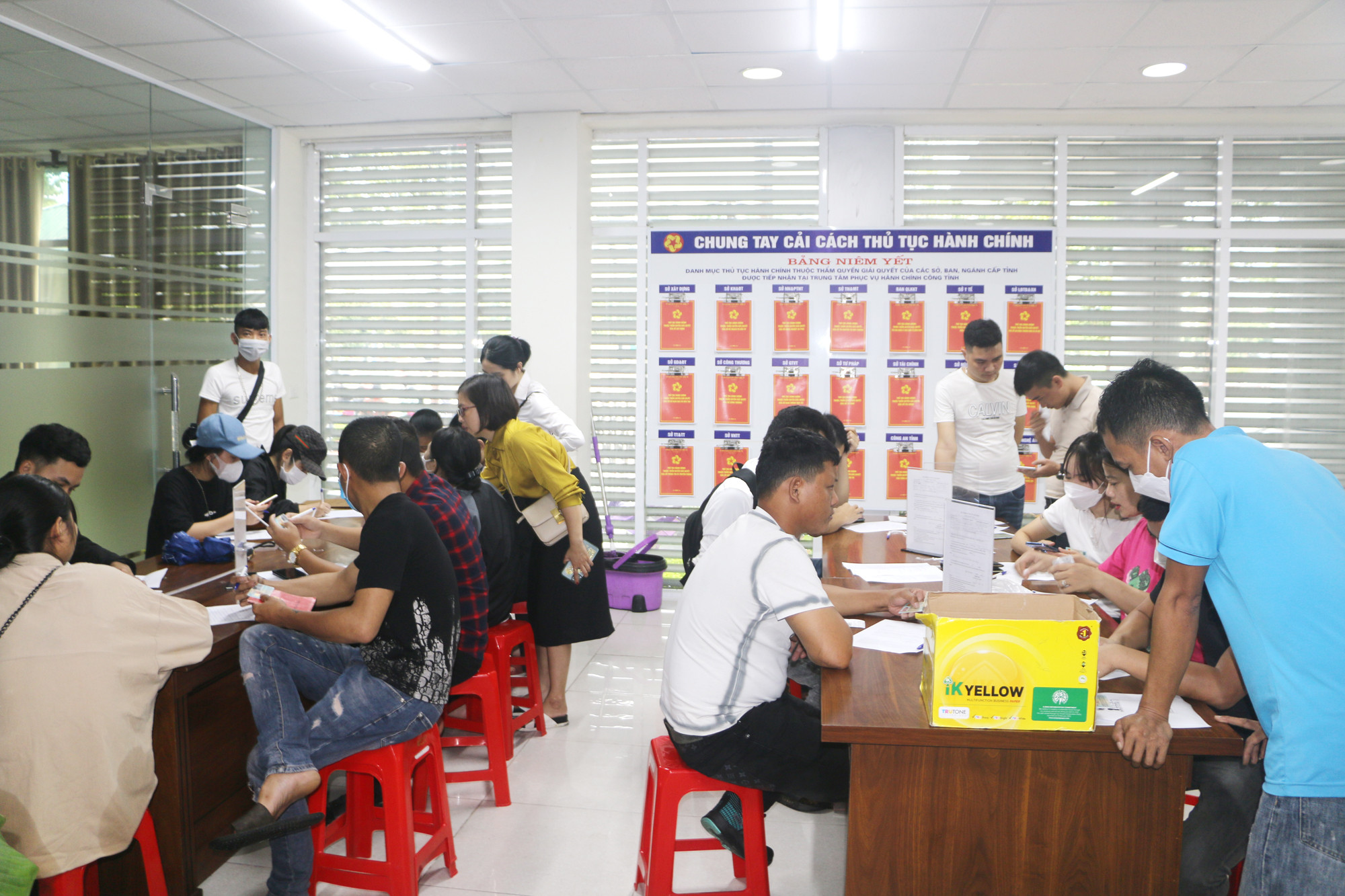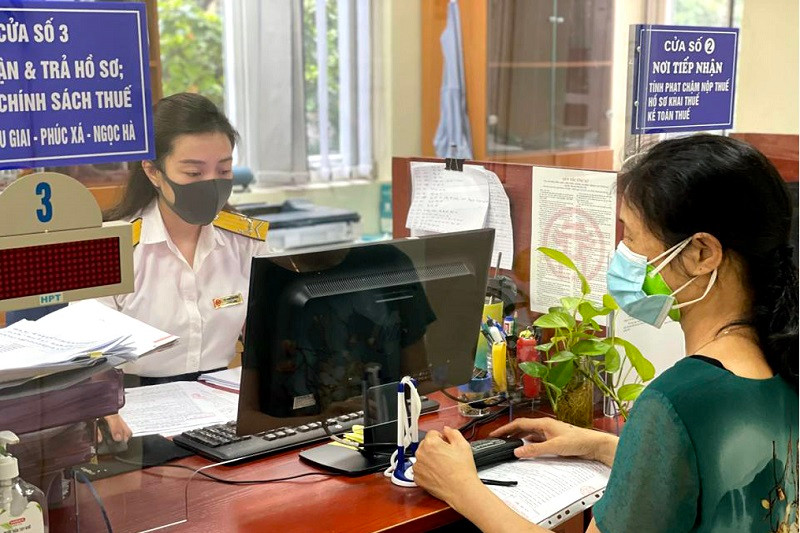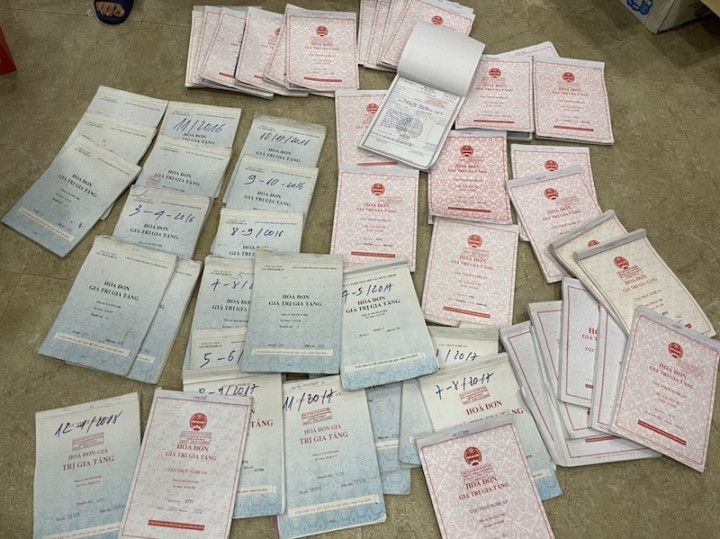Sophisticated tricks in buying and selling electronic invoices in Nghe An
(Baonghean.vn) - Managing electronic invoices and preventing tax losses by issuing an electronic invoice system applied nationwide from July 1, 2022 is one of the tax sector reform strategies, aiming to serve people and change tax management methods to be more effective.
However, recently, some organizations and individuals have taken advantage of the flexibility in mechanisms and policies to establish businesses and conduct the act of buying and selling invoices to profit and appropriate money from the State budget.
Tax bill fraud is on the rise.
First of all, it must be affirmed that the transition from paper invoices to electronic invoices is aimed at reforming administrative procedures, creating convenience, reducing costs, and increasing business productivity. This is an activity that contributes topromote national digital transformation, developing digital economy and digital society, bringing many benefits to the business community, people and society.Correct implementation of regulations on invoices and documents helps create a healthy and equal business environment, creating favorable conditions for business development.

However, in recent times, taking advantage of legal loopholes and lax tax policies, many subjects have committed acts of profiteering. Among them, some high-tech criminals have forged electronic invoices, openly buying and selling invoices on social networking platforms such as Facebook, Zalo, etc.

In Decision No. 885/QD-BKHĐT dated June 30, 2021 of the Ministry of Planning and Investment promulgating administrative procedures in the field of business establishment and operation, when registering to establish a business, business households only need to provide copies, do not need to notarize or authenticate documents proving personal information, and registration documents can be submitted electronically. This regulation creates favorable conditions for people and business households, but is a loophole in risk management for the Tax sector. Many bad actors use inappropriate legal documents, declare inaccurate information to establish a business, then illegally buy and sell invoices for a short time and then "escape", abandon the old address and continue to establish another business to illegally buy and sell invoices.
According to the electronic invoice management process, the registration for using electronic invoices is done through an automatic electronic information portal, and the Tax authority receives and processes it within 1 working day. However, because the issuance of a Business Registration Certificate is too easy as mentioned above, it makes it very difficult for the Tax authority to manage taxpayers using electronic invoices. Not only that, invoice sellers often establish new businesses, issue invoices en masse in a short period of time, then abandon their business address and continue to establish new businesses, making it even more difficult to trace...
(Mr. Nguyen Dinh Duc - Director of Nghe An Tax Department shared)
In fact, there are many cases where businesses are suspected of buying and selling invoices, even creating a tracking file, but when tax officials come to verify, although there are still people named as legal representatives, they affirm that they do not know, are not related to, and do not work for this business.
In addition, the penalties for the crime of buying and selling invoices are still light and not deterrent enough. Specifically, according to Article 203 - Penal Code 2015, which stipulates the crime of illegally printing, issuing, buying and selling invoices and documents for payment to the state budget, the maximum penalty for this act is imprisonment from 01 to 05 years, the highest fine of 01 billion VND for commercial legal entities. Meanwhile, the illegal profit from selling invoices is very high, causing serious consequences for the state budget.

In Nghe An, although releasedelectronic invoiceIn less than a year, tens of thousands of invoices without authentication codes were discovered; the Nghe An Tax Department had to temporarily suspend invoice registration for 91 newly established enterprises. Meanwhile, the Ho Chi Minh City Tax Department discovered 450,000 invoices without authentication codes, even in one case a bird's nest enterprise issued invoices worth 34,000 billion VND in just 1 week. When checked, it was discovered that there were only 40 million VND in bird's nest business invoices, the rest were invoices exported to the stock market.
What solutions to manage and tighten?
It is a fact that the act of buying and selling invoices, especially since the issuance of electronic invoices, is very complicated, while with the current management method, the Tax authority is completely passive in the fight against subjects with the above behavior.

According to Article 21, Circular No. 31/2021/TT-BTC dated May 17, 2021 stipulates: For taxpayers with high risks regarding invoices and documents, they will be included in the list for review and inspection at the headquarters of the Tax authority. For taxpayers with low-medium risks, samples will be selected for review, inspection, handling and increased support for taxpayers to comply with legal regulations on invoices. This means that the Tax sector is implementing a post-audit style, following the actions that taxpayers have taken.
Therefore, basically, when the sale of electronic invoices has occurred, the Tax Department will conduct a review, detection and handling. The Tax Department is completely passive and the solution is more "defensive" than proactive in fighting against the invoice sellers.

In addition, although the Tax authority regularly receives coordination documents and warnings about high risks regarding taxes and invoices, the content is quite simple such as: Enterprises (DN) do not operate at the business address, have no input but have invoices issued, goods purchased from enterprises that have abandoned the business address, goods purchased from enterprises with high risks regarding taxes... However, the above warning contents are quite general, so it is difficult to fight with taxpayers (NNT) who use invoices of warned enterprises.

In reality, there are many different types of businesses that are at high risk of selling invoices. Some businesses are established just to sell invoices, some businesses both do real business and sell invoices, some cases of floating purchases without input invoices but when selling goods, they use another business to issue output invoices... Therefore, if the warning contents are not specific and do not clarify the nature of the violations of the e-invoice seller, it will be very difficult to handle taxpayers who use invoices from these risky businesses.
From the above practice, according toDirector of Nghe An Tax Department, it is necessary to implement synchronous solutions. First of all, the group of policy solutions: Accordingly, the Tax sector needs to advise and propose to competent authorities to have heavier and more deterrent regulations and sanctions for the crime of illegally issuing and selling invoices. Along with that, there is a form of handling for taxpayers using illegal invoices who have made tax declarations to reduce the amount of tax payable or increase the amount of tax refunded to prevent the demand for illegal invoices. This is the subject that needs attention to handle the root cause, which is the demand for illegal invoices.

In addition, it is necessary to supplement regulations, based on the practical situation of tax management, when the Tax authority detects that a taxpayer has signs of high risk, in necessary cases, the head of the Tax authority is allowed to request the taxpayer to apply the form of using electronic invoices for each occurrence to promptly prevent the act of buying and selling invoices. In addition, it is necessary to increase the time to receive and process the taxpayer's electronic invoice registration declaration instead of just 1 day to compare the information according to current regulations.
The second is a group of solutions on management methods: It is necessary to change from "anti" to "prevention" for invoice sellers by monitoring taxpayers right from the beginning of establishment, starting to receive and process registration applications for using electronic invoices.

Currently, the Nghe An Provincial Tax Department stipulates that, in the case of a newly established enterprise, within 05 - 10 days from the date the officer assigned to monitor the enterprise must verify the business location and conduct an initial risk assessment and classification according to the preliminary risk assessment criteria that the Nghe An Tax Department has developed, such as: general assessment of the legal representative/headquarters/accounting apparatus of the enterprise/initial assets of the enterprise... The initial risk assessment will serve as the basis for fighting cases showing signs of fraud.
Decision No. 489/QD-TCT dated April 7, 2022 of the General Department of Taxation has clearly stipulated the transfer of reports and recommendations for prosecution to the investigation agency. However, before transferring the records, the Tax authority must determine what the tax law violation is and what the signs of the crime are. In the past, the Tax sector has chosen a safe solution and has not been decisive in consolidating records to transfer to the investigation agency. Therefore, the number of enterprises prosecuted for the crime of buying and selling invoices is not large; not enough to deter those who commit acts of profiteering...


.jpg)






